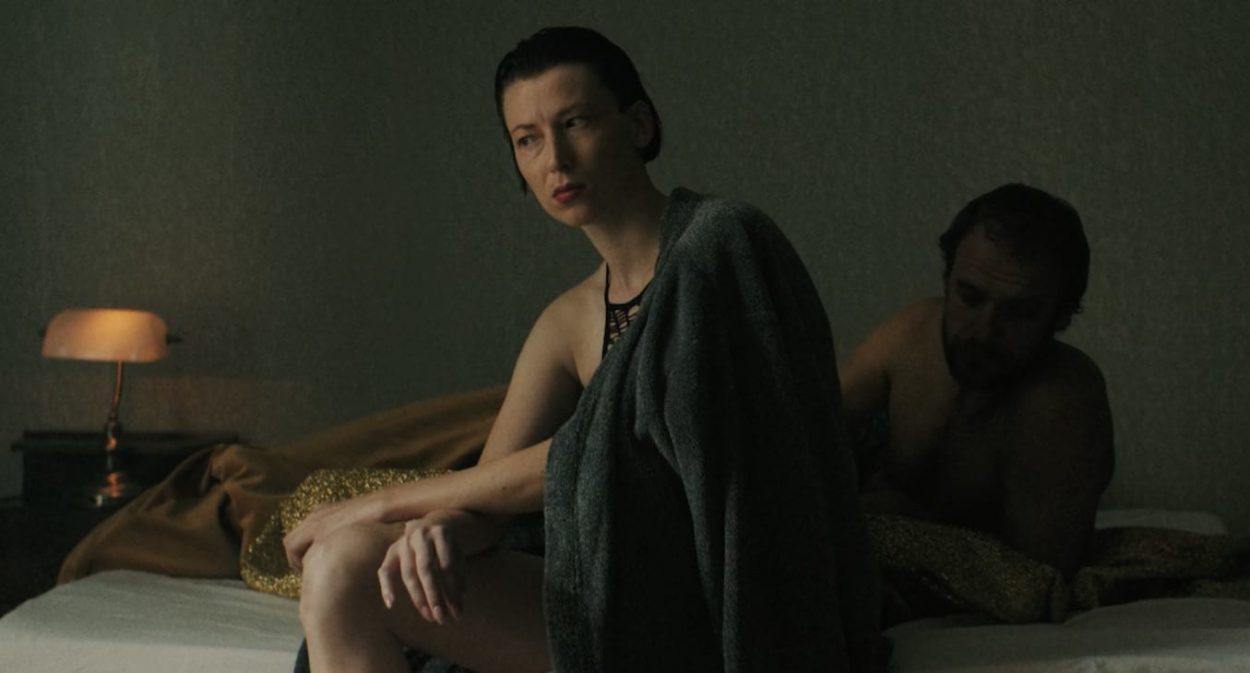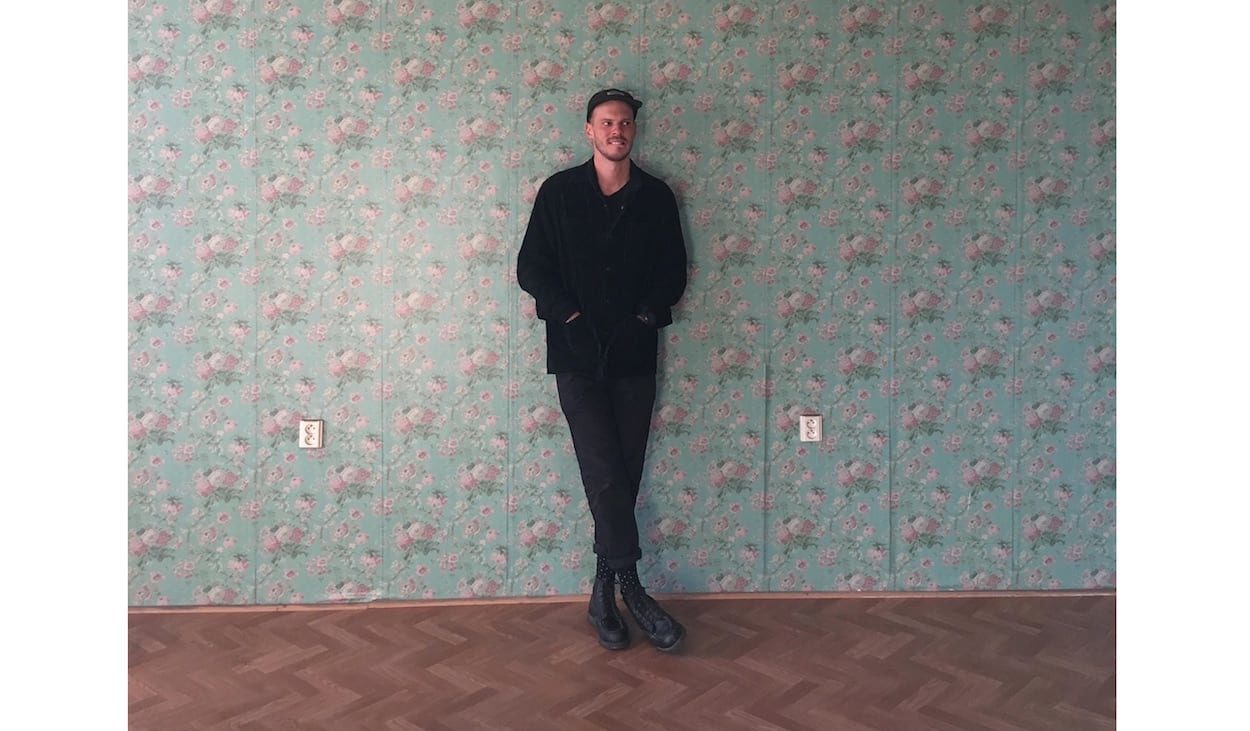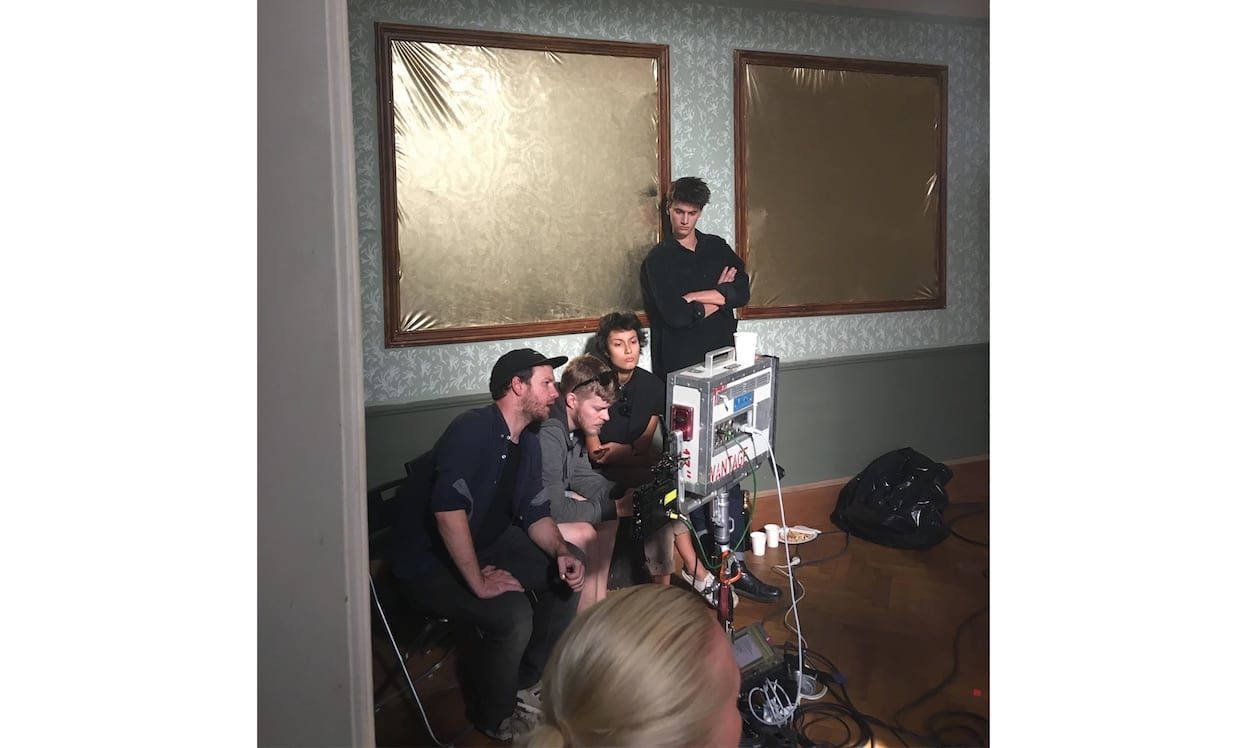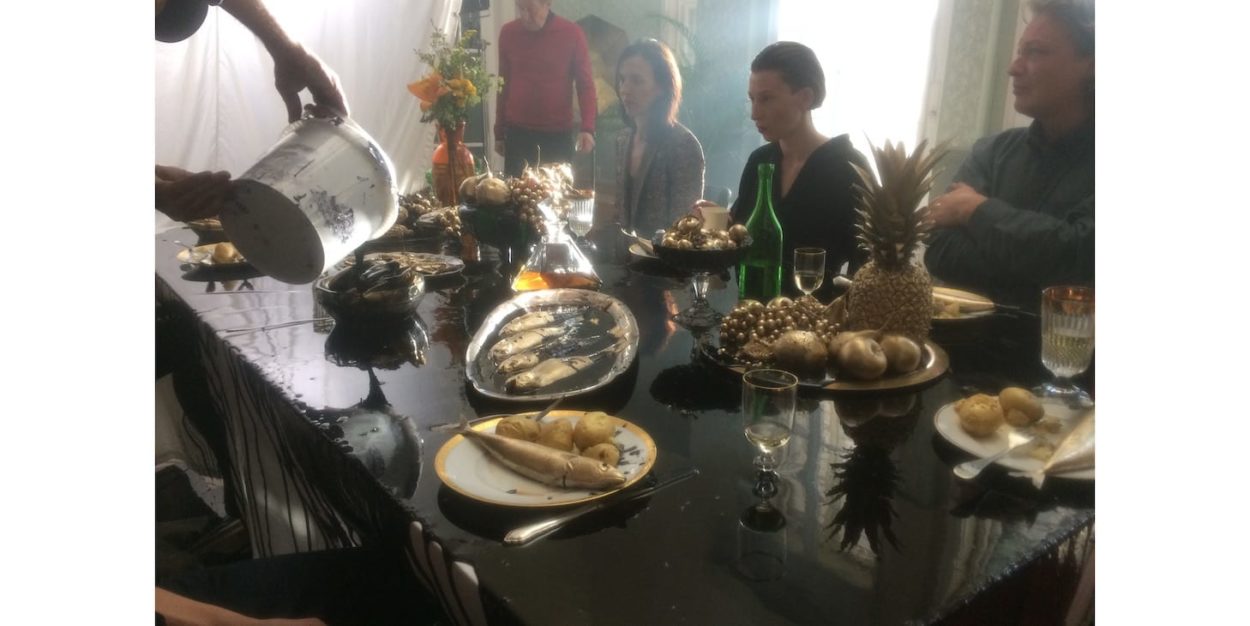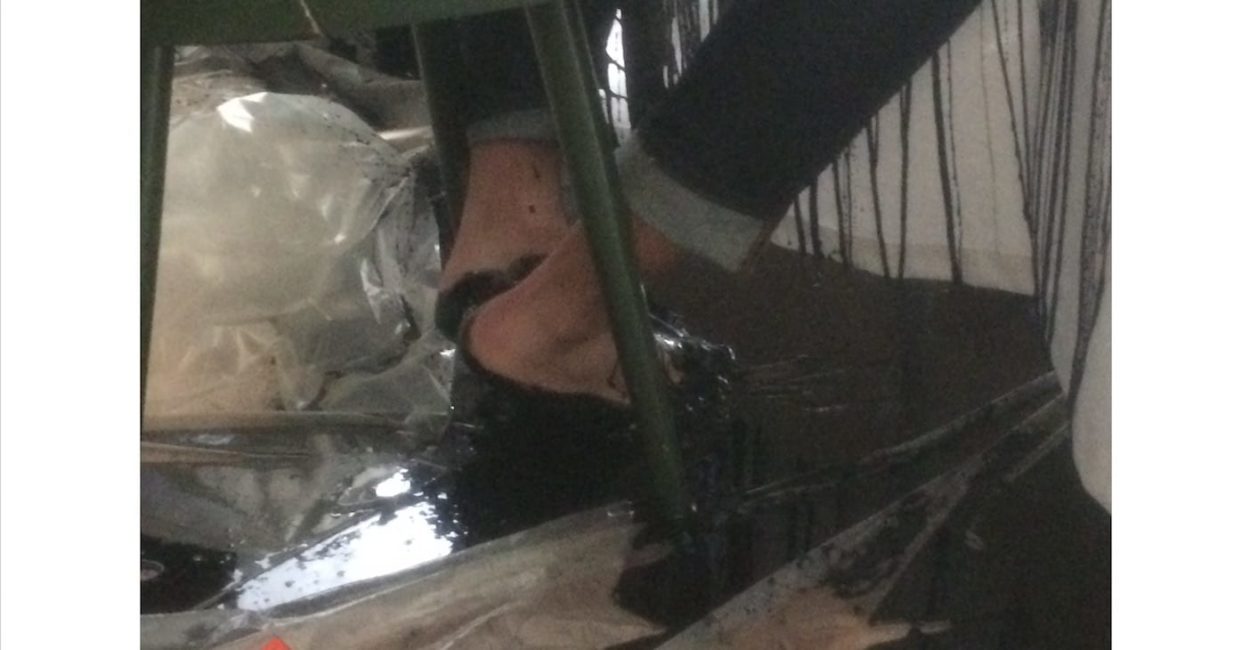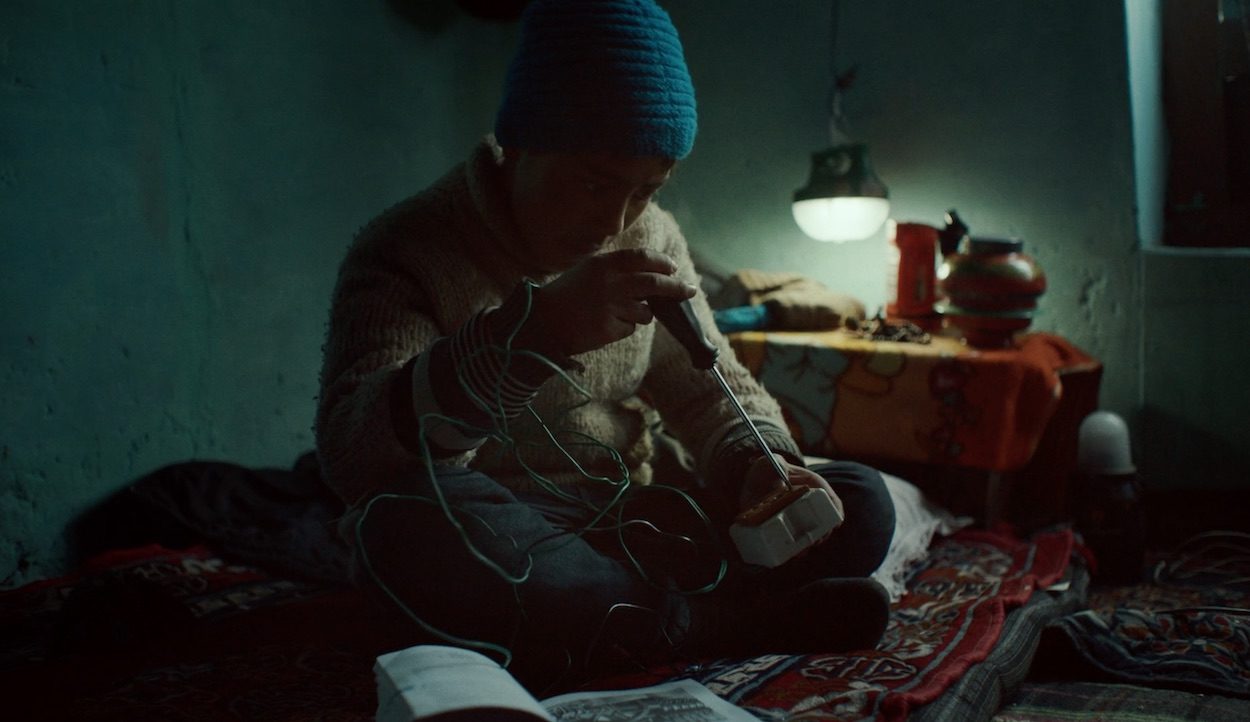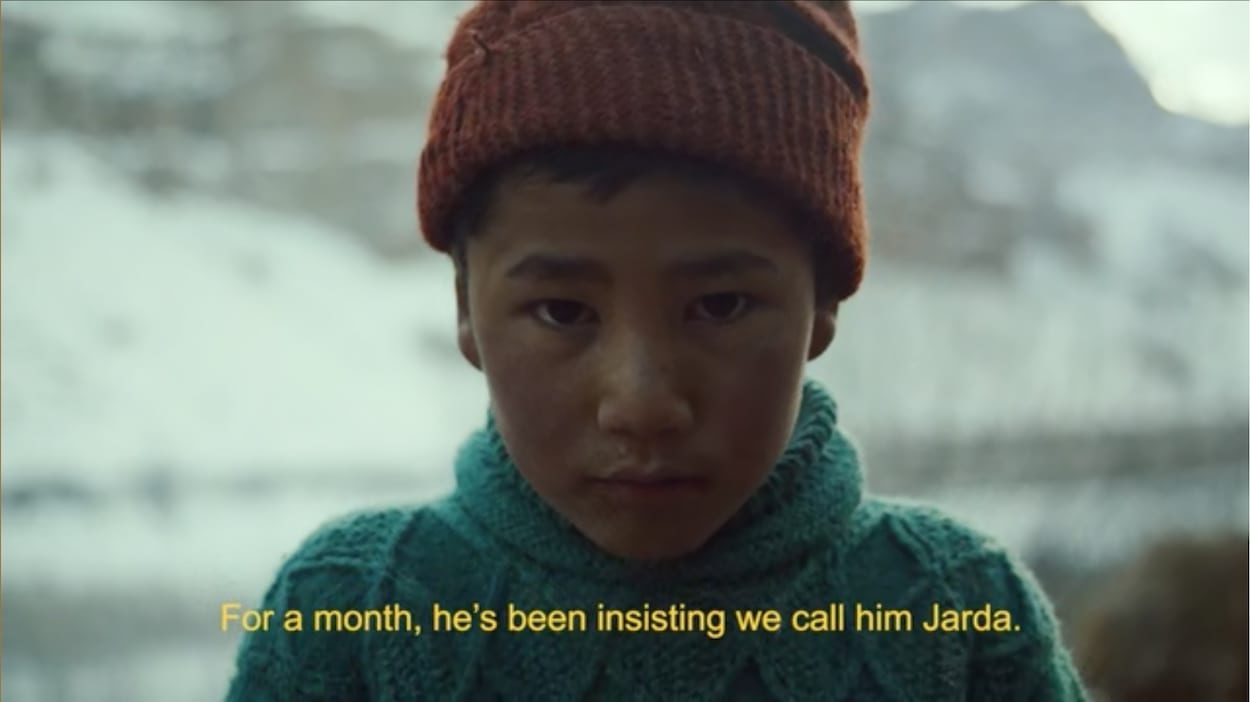Your film for Son Lux’s track Yesterday’s Wake explores completely different territory from your film Jagrlama – it’s sophisticated, minimal, beautifully shot on slick kit, and the narrative is full of mystery. Almost icily cool. What was behind your decision to write and create a film that is so different?
It wasn’t my decision that much. The song Yesterday’s Wake itself asked for this. When I was listening to it for the first time, a poetic apocalypse appeared before my eyes. The voices of both singers were more of wailing than singing. As if they talked about the cause of this apocalypse, about the mistakes they’ve made and about possibilities to fix them. I’m a big fan of Carl Gustav Jung and his theory of symbols interests me above all. Therefore, it has always attracted me to shoot a video narrating through symbols and signs. This way of storytelling perfectly fits to express this human destruction.
The narrative is open to interpretation – it’s laden with biblical and metaphorical symbols. Please make it easy and tell us your own interpretation.
I believe that everyone can see something else and there’s nothing such like a wrong interpretation. Subjectivism is something absolutely immanent in symbolic storytelling. It was a pleasure for me to see people’s various interpretations of the story on the internet. To see that it made them think. It pleased me all the more when I read interpretations that corresponded with my intention. It confirmed my belief that the symbolic language can be really universal, regardless of the culture and ethnicity.
And the meaning? To summarise, the music video is about mankind’s self-destruction. About the fact that the tendency to own, violate and enjoy ourselves to the detriment of our environs can one day be fatal for us. We’re actually slowly killing ourselves by this behaviour. The name of the song Yesterday’s Wake can mean that we realize our self-destruction too late with irreversible consequences.
You also edited, wrote and directed the film. Did you prepare everything to minute detail before the shoot and were there any surprise developments along the way?
It was an organic process and the original story is slightly different from the result. I enjoy not having to strictly obey some given script. I love when I can react to the circumstances emerging during the production. In this case the story slightly changed when we found the protagonist – Marketa VuTru. Suddenly a personality with archaic and aristocratic spirit stood before our eyes. I can say that while the narrative is based on the track, the aesthetics and stylization was inspired by Marketa before all. The impression she gives and the character she radiates created the world in which she could live.
In fact the edit is exceptionally balanced between beat and visuals – is this a process you enjoy?
The song was absolutely perfect for the edit and I dare to say that every editor would love to work with that song. Both quick and loud parts can be found in it. The dynamics changes incessantly. The first part of the song is basically only a drum solo where Ian Chang and a member of Darren King took part. The dominance of hits in this overture is so strong that I couldn’t resist to work with these accents not only in the edit, but also in the intensification of the visual content. And that’s what I always enjoy when editing a music video. Sometimes you intensify the song by the edit, sometimes you let it work with the help of visuals. Than the dynamics of the edit is not so predictable.
To what extent did you collaborate with the band?
In this case we had carte blanche. The management and the band had complete confidence in us. The only demand was to take account of the visual aesthetics of their last album which was based on working with golden colour.
What were the main challenges of the production and how did you resolve them?
The greatest difficulty was working with the black liquid. We wanted it to be dense enough and the black colour had to be really full and non-translucent. The most convenient way we found was to mix glucose syrup with black pond pigment. It worked wonderfully for the camera but it was a total nightmare for the crew. We all had sticky fingers and we discovered black stains at various places long after the shoot.
LINKS:
Czech production: jirka@bistrofilms.com
UK production: Blink paul@blinkprods.com
